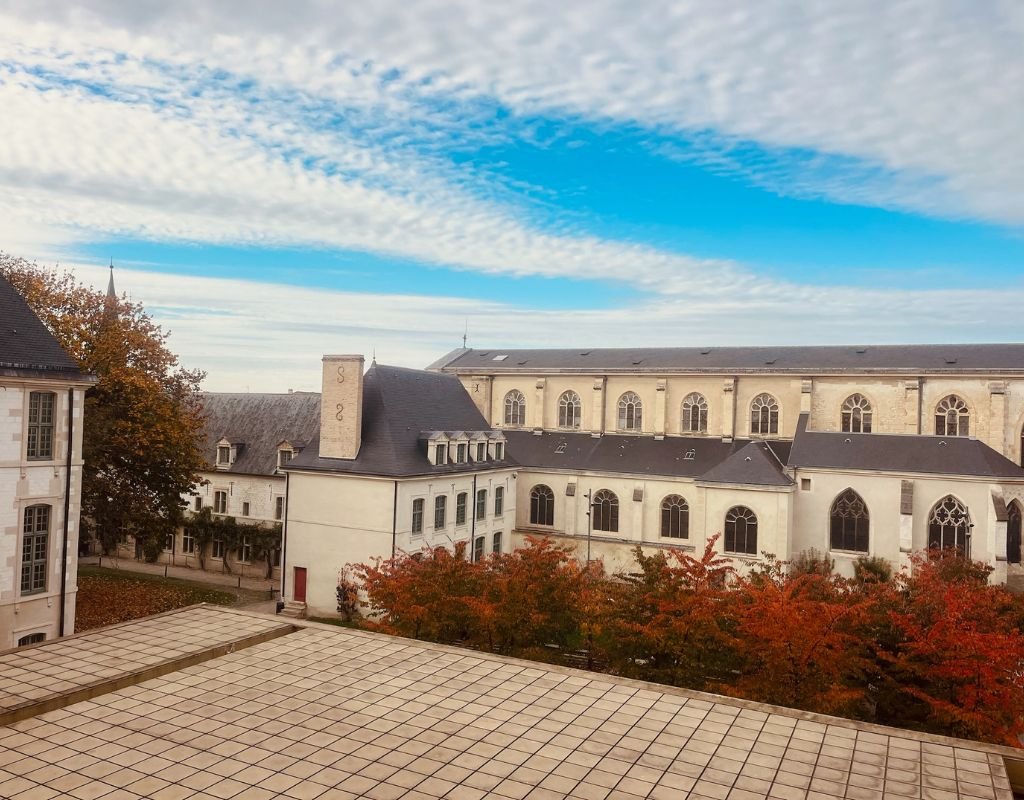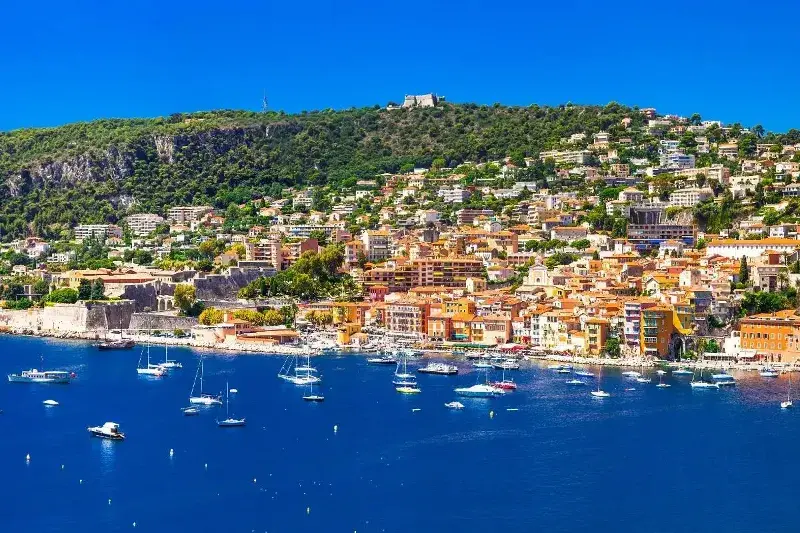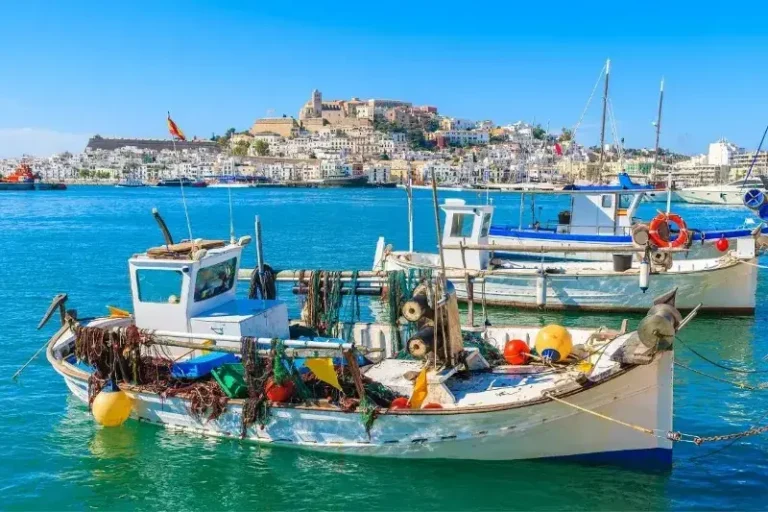Should I Move To France? 14 Pros & Cons Of Living In France (2025)
|
Are you contemplating a move to France? Firstly, France is a great choice! From its stunning landscapes, rich food culture, affordable education, and top-rated healthcare system, France a place where you can enjoy a high quality of life.
Many incentives might convince you to move to France from your home country, but what about the disadvantages?
In this blog post, we will share the bad, the good, and the exceptional pros and cons of moving to France to help you decide if moving abroad is right for you. We will discuss the cost of living, crime rate, food culture, language barriers, famous landmarks, healthcare, cultural norms, and so much more!

Pros and Cons of Living In France
Those who visit France say that’s nothing short of a real-life dream. It’s no surprise that it’s one of the most romantic countries on Earth given its quaint cafes, charming cathedrals, and chic exterior. However, being a tourist versus being a long-term resident are two very different things. Every destination on Earth has pros and cons (yes, even Paris!). I outline the most important ones below:

👉🏻 Pros
👍🏻 PRO 1: Excellent Health Care System
When it comes to the French healthcare system, it consistently outranks the U.S. healthcare system in many areas. The healthcare system in France is made up of private doctors who provide care to patients with both government insurance plans and private insurance plans. It’s significantly cheaper to get medical care in France than in the U.S. and many other countries as well.
The purpose of insurance companies in France doesn’t exist simply to make a profit for investors, but to actually pay for people’s medical care. Unlike in the U.S., people can not be turned away from care due to a pre-existing condition. Life expectancy is also higher in France than in the U.S. This could be due to the fact that the French go to the doctor for preventative measures more times per year than Americans do (8 times a year in France compared to 5 in the U.S.)!
Infant mortality rates in France are also much lower than the U.S. rates. France surprisingly has more doctors and hospital beds per capita than the U.S. It’s no wonder that the World Health Organization named France as having the world’s number one healthcare system!
👍🏻 PRO 2: Affordable Education
If you are interested in attending university in France, or have children who will, you will be relieved to know that France has one of the most affordable education systems in Europe. The reason for this is because the state subsidizes a large portion of the cost of tuition.
For example, the total cost of an education to attend a public university usually costs around 10,000 euros per year for a Bachelor’s and 14,000 euros a year for a Master’s degree. However, the French government pays for two thirds of that cost – even for international students. That being said, the total cost does depend on whether or not the school is public or private, a student’s nationality and which program they plan to study. Some programs are slightly more expensive than others (engineering, for example).
Still, receiving higher education in France comes at a very nominal fee. The average public university in France costs 170 euros per year for a bachelor’s degree, 243 euros per year for a master’s degree, and 380 euros per year for a PhD. Compared to the U.S. (which can cost upwards of $50,000 per year), that’s a deal!
👍🏻 PRO 3: A Strong Work-Life Balance
France’s laid back work-life balance is very appealing for many foreigners contemplating a move to France. This is especially true for U.S. citizens looking to escape the 60 hour-per-week. In fact, France is considered to have one of the best work environments in the world.
The average employee in France works 35 hours per week. Employees in France are given a required minimum of 5 weeks of paid vacation per year. Compare this to the U.S.’s mere 10-15 days per year. These vacation days are mostly taken during the summer months when many French businesses close. The separation of work and life outside of work are also respected. Most employees don’t work or take calls outside of business hours.
Another perk of the French work culture are the long lunch breaks. It’s not uncommon to see people socializing or enjoying longer lunch breaks in the middle of the day.
👍🏻 PRO 4: Efficient Public Transportation
France – particularly Paris – is known for having one of the best urban public transportation systems in the world. Known as the Trian à Grande Vitesse, it is a web-like, highly efficient and cost effective network. It delivers passengers to destinations in France and destinations abroad in unimaginably short periods of time.
The schedules are punctual for the most part. Most train cars and buses are clean and environmentally friendly as well. For example, the French government has specifically invested in sustainability practices to introduce hydrogen-powered buses. While it slightly varies by city and town, the cost to ride public transportation in France is also a perk. Bikes and electric scooters are options for getting around, so the choice is yours!
👍🏻 PRO 5: World Renowned Food Scene
France is the most popular vacation destination in the world, but have you ever wondered why? For many, it’s the cuisine. France has a reputation for producing some of the highest quality, most diverse cuisines in the entire world. A big reason for this is the quality and freshness of the ingredients used by many restaurants and cafes.
The French are also very proud of their history and place a strong emphasis on traditional recipes and cooking techniques. In fact, French gastronomy as an entity has been named by UNESCO as a “intangible cultural heritage of humanity.” This is due in part to a few factors. First, for the wide array of unique dishes found throughout each region. Second, for it’s focus on using quality French ingredients. And third, for the number of Michelin-starred restaurants and high-end restaurants found throughout the country. Bon appetit!

👍🏻 PRO 6: Rich Culture + History
France has one of the most fascinating histories out of any country in the world. For centuries, France has played a pivotal role in the global fashion, art, food, and entertainment industries. In total, France boasts 40,000 protected monuments and landmarks, 8,000 museums, 500 theatres, and 6,000 libraries! The French have also made significant advancements in the fields of science and mathematics. Did you know the French invented the first calculator, the probability theory, and the Cartesian Coordinate System?
Then, there’s the architecture and culturally significant landmarks. Given the contrast between sprawling urban cities and rolling countryside, France is home to 43 UNESCO World Heritage sites. There are of course more well known landmarks such as the Eiffel Tower and the Château of Versailles. However, there are hundreds of lesser known sites such as the Saint-Guilhem-le-Désert and the town of Rouen (where Joan of Arc was put on trial) to explore. Every city, town, and village has a story to tell!
👍🏻 PRO 7: Diverse Landscapes
You will find just about every type of landscape that you can possibly think of throughout France. From Mediterranean beaches and ocean side cliffs, to tall mountain peaks and rolling plains, France has it all. This alone is another reason why millions of tourists flock to France every year.
It’s easy to experience a vast array of landscapes in a short period of time. For example, you can spend a couple of days relaxing on the beach in the French Riviera, and the next day you could be ascending Mount Blanc in the French Alps. France is also famous for its lavender fields located near Provence, as well as the rolling hills of its wine country in Burgundy.
👉🏻 Cons
👎🏻 CON 1: Cost of Living
While France is cheaper to live in than the United States, Australia, or New Zealand, it’s still high when comparing it to other E.U. countries. As I mentioned previously, the cost of living does vary depending on where in France you decide to live. For example, if you decide to relocate to Paris, you can expect to pay a lot more for rent, groceries, and extracurricular activities.
However, if you move to a smaller city in central or eastern France, you can expect to pay much less. For reference, a single person can spend between 1,800 and 2,000 euros per month in Paris, while a family of four might need 41,000 euros per year or more to cover their living expenses.
👎🏻 CON 2: Bureaucracy
There is always a level of frustration and challenge to be expected when moving to a new country with new laws and a different culture. However, the French government can truly test your patience. Due to its slow, laid back work style, processes for visa services or getting documents signed or approved can be extremely slow.
To make this challenge less daunting, it’s best to go into it with certain expectations. Keep copies of everything, remain proactive and follow up on the status of things, and always provide exactly what is asked for. Calling to follow up is also more productive than sending emails, so it’s especially helpful to learn French.
👎🏻 CON 3: High Taxes
One downside of living in France is definitely the high taxes. Afterall, someone has to pay for the healthcare and education of the entire country! In fact, taxes in France are much higher than that of the U.S. (and the U.S. has high tax rates!) France ranked number one out of 38 Organisation for Economic Co-operation and Development (OECD) countries for their tax-to-GDP ratio last year.
Most recently, France’s ratio was 46 percent compared to the OECD average of 33.9 percent. Furthermore, the overall tax rate on the average French income in 2022 was 82 percent of gross salary – that’s a lot! It ultimately comes down to whether or not you think the reward of cheap health care and higher education are worth it.
👎🏻 CON 4: Language Barriers
Another downside to living in France is the potential language barrier. France is extremely strict when it comes to enforcing French as the primary language. If you don’t speak French at a moderate level, you might find it difficult to communicate in some important situations. Some people in tourist areas (around Paris and the French Riviera, for example) may speak other languages, but that’s not common. This will especially ring true if you relocate to a smaller town or village and have to complete administrative services.
If you don’t start learning French before you move to France, you might find that completing necessary tasks will be difficult. This could include opening a bank account, using public transport, buying or renting real estate, or even connecting with locals.
👎🏻 CON 5: No Air-Conditioning
Even though there are some hotels and homes that do have air conditioning, it is not common across France. In fact, only about 5 percent of homes throughout France have it! This is mostly due to space constraints as well as the age and historical significance of many buildings.
If this is a comfort or health issue for you, it’s something to keep in mind. The cost of installing one in a home might be extremely expensive, while the cost of installing one in a rented apartment may not be covered by a landlord. For context, the temperatures in France during the summer can surpass 82 degrees Fahrenheit (28 degrees Celsius).
👎🏻 CON 6: Old Infrastructure
As I mentioned above, France has many homes and buildings with historical infrastructure. Throughout the past decade, France has made many modern advancements to its infrastructure system. For example, the RATP installed air conditioning inside its buses, TVG trains, and half of its metro fleet. However, don’t always expect the same luxuries that some other Western countries enjoy such as elevators or escalators. A lot of structures just simply weren’t built to include them, which can be a bit of a shock for people coming from the U.S. especially. Be prepared to get your steps in while in apartment buildings, monuments, churches, and museums!
👎🏻 CON 7: Worker Strikes
Another aspect of life in France that some might find confusing and surprising are the amount of worker strikes. While it may be inconvenient, French law gives employees the right to form unions and strike without fear of losing their job over it. Compared to other E.U. countries, France sees quite a few strike days. In fact, 2.5 percent of companies reported at least one strike day in 2024. This is actually one full percentage point less than the decade prior.
In 2022, for every 1,000 employees, 99 days were missed due to a strike. Why is this? The reasons vary, but usually it’s related to working conditions, job opportunities, pay, and pension reforms. It can be frustrating, especially if a strike occurs against a company that handles public transportation or other services that impact daily life.
Is France A Good Place To Live?
France is the most visited country in the world. If millions of people choose to spend their vacations there, it’s no wonder that so many foreigners also consider relocating there temporarily (or permanently)!
Moving to France offers many benefits, some obvious, and others surprising. First, many people enjoy the cultural richness that a life in France provides. France’s 35-hour work week and generous work-life balance can be very appealing. This especially rings true for Americans who can work between 60 to 70 hours a week. For families with children, a top-rated and affordable education system is also a very important perk. Unlike other countries such as the U.S., France offers affordable universal healthcare. France employs some of the world’s top medical professionals, and medical treatment and prescriptions are a fraction of the cost.
One of the biggest challenges to overcome when moving to France is the language barrier. If you learn French prior to moving to France, you will find that adapting will be a lot easier. In addition to this, if you can tolerate the challenges of governmental bureaucracy and learn to accept and adopt cultural norms, you will discover that France is generally a very nice place to live!
Is It Expensive To Live In France?
When deciding whether or not you should move to France, budget and the cost of living are two very important components to consider. Generally speaking, it is true that France is one of the most expensive countries in the world. However, this ultimately depends on a couple factors including where in France you live, and how many people are in your family. The average cost for a single person in France is around 1000 euros a month. For a family of four, however, it costs upwards of 3500 euros per month.
Cost is also determined by where in France you live. If you choose to move to Paris, for example, expect to pay more for groceries, renting an apartment, or buying a house. In Paris, renting an apartment can range from 800 euros for a private room, to 5000 euros a month for a three-bedroom apartment. Groceries can range from 80 euros for a single person to 300 euros a month for a family of four.
If you are planning to move to France permanently and are considering buying a home, where you choose to live will be especially important. For example, the average cost of buying an existing home in Paris is more than 9000 euros per square meter. However, the average cost of buying a home in the smaller city of Limoges is around 1200 euros per square meter.
So, Should You Move To France?
So, should you move to France? Hopefully, the information provided in this blog post has helped you come to a more finite decision. While the choice to relocate is ultimately up to you, many people believe the rewards of living in France far outweigh the challenges! You might wonder why this is the case…
For one, moving to France will introduce you to an entirely new culture and way of life. A slower pace with a generous work-life balance is something that not a lot of people get to fully enjoy. This paired with an excellent healthcare system greatly improves overall quality of life.
Additionally, the gastronomy in France is truly second to none. French cuisine is known around the world for using fresh, local ingredients from farmers and local suppliers. The French diet is heavy with fresh fruits and veggies, as well as creamy cheeses and decadent desserts (in moderation of course). If there is one thing that makes the cost of living in France worth it, the food is definitely it!

Best Places To Live In France
Now that you have (hopefully) decided to pack your bags and move to France, you might be wondering where exactly in France to move. There are so many charming villages and vibrant cities throughout France that it can sometimes be difficult to choose a permanent location. Lucky for you, I’ve outlined a few of the top places to live in France based (aside from Paris) on cost of living, employment opportunities, climate, crime rates, and more!
📍 Place 1: Nice
Considered one of the most beautiful areas of France, many people choose Nice as their home base when they move to France. Nice is cheaper to live in than Paris, and it’s a great spot for singles and couples. Aside from its obvious beauty, another appealing aspect of Nice is the weather. You won’t have to worry about raging blizzards in the winter, or unbearable heat in the summer. It enjoys a pleasant Mediterranean climate year-round.
There are also plenty of stunning beaches to enjoy nearby. A few of the most famous ones include Lido Plage, Opera Plage, and Plage Beau Rivage. These beaches are perfect for relaxing or engaging in outdoor activities like swimming or kayaking.
Another perk of moving to Nice is the cuisine. Not only will you have access to some of the freshest seafood, you can enjoy a blend of Italian, Greek, and French cuisine!
📍 Place 2: Strasbourg
Located in the stunning Alsace region, Strasbourg is a fairytale-like city that is popular for holiday vacations. Millions of people ascend upon the snowy town in the winter, but that’s not the only good reason to visit (or live!) there.
Surrounded by the Vosges Mountain range, it’s a great spot to enjoy outdoor activities such as skiing, snow shoeing, camping, and hiking. Its geographical location also puts it in close proximity to other countries such as Germany and Switzerland. Many expats choose Strasbourg as their relocation spot to more easily explore nearby countries in a short amount of time. Because of the large expat community, interacting with others is easier with meet-ups, events, and expat-friendly resources.
In regards to expats, the Alsace province has excellent social security and health care systems. In fact, many consider them to be the best in France. If you are a legal resident of any town in Alsace, 90 percent of your health care expenses are covered which is about 20 percent more than the general system.
📍 Place 3: Toulouse
Toulouse is a popular city in Southwest France among expats and digital nomads. The fourth-largest city in France behind Paris, it offers an incredible quality of life. First, the cuisine in Toulouse is second to none. The city is famous for inventing popular French dishes such as foie gras and cassoulet. Many restaurants in the city’s Old Town serve these delicacies. After an upscale lunch, you can visit one of dozens of historical churches and museums nearby. The Musée Saint-Raymond and the Basilica of Saint Sernin are a couple of the most popular.
If you have a family, Toulouse is a great place to move to if you want to spend time outdoors. Locals live life at a slow pace, connecting with others in community gathering areas. There are plenty of parks and green spaces around the city such as the Jardin des Plantes which is the oldest park in the city dating back to 1730. They are able to spend so much time outdoors thanks to the mild weather enjoyed pretty much year-round. They rarely get snow!
It’s a great city to move to if you want to enjoy many of the perks of Paris without actually living in Paris. Toulouse hosts plenty of festivals, clubs, and historical events throughout the year. Compared to other cities in France (aside from Paris), Toulouse also offers job opportunities in fields such as aerospace and aeronautics. A reliable public transportation to explore the surrounding area is also available. What more could you ask for?
📍 Place 4: Perigueux
If the cost of living is something of a pain point for you, the Dordogne region is a good choice. It’s one of the most affordable areas to live in France, and its capital city of Perigueux is no exception. It is a more rural city, but the upside is that no matter where you live, you’ll enjoy close proximity to the Dordogne River, and views of rolling hills and countryside. With a population of about 30,000 people, it’s a quaint smaller city with a sizable expat population. You’ll experience the perfect blend of local culture and a diverse international community.
Perigueux, and really most of Dordogne, is great for those who love the outdoors. Hiking, biking, kayaking, and swimming are all very popular activities there. Due to it being rural in nature, you may have some trouble finding locals that speak English. It just goes to show that you really do need to learn that beautiful French language!

📍 Place 5: Lyon
Lyon, France is the place to go if food is your love language. The city is literally nicknamed the “world capital of gastronomy” and for good reason. Some people say that the city has more restaurants than people. While it’s supposed to be a joke, there might be a little truth to it! In fact, there are more restaurants per head there than in any other city in Europe.
In addition to its thriving food scene, Lyon also boasts a historically diverse culture. The city itself is a UNESCO World Heritage Site! Just imagine walking by the ornate Basilique Notre-Dame de Fourvière or the Roman ruins of Théâtres Romains de Fourvière every day.
While the city isn’t the cheapest place to live in France, it’s significantly cheaper than Paris. If you’re single or a couple moving to France, it could be an affordable option. Additionally, since Lyon welcomes millions of tourists every year, a larger percentage of the locals speak fluent English or have a higher proficiency. However, it’s still highly recommended that you learn French.
Frequently Asked Questions
Still on the fence about whether or not you should move to France? Below are a number of frequently asked questions below to aid you in your decision-making process:
The answer to this depends heavily on your financial situation, your preferences, and your ability to adapt to French life. There will always be challenges to overcome with any new country you move to. However, most foreigners that move to France find that it’s a good decision. If you can look past French bureaucracy, you’ll find that the country’s high quality of life, dynamic food scene, and supportive expat communities make it worth it.
This is a question where the answer is truly subjective depending on an individual person and their preferences. There are pros and cons to every country as no place is perfect. However, France is typically known for having a higher quality of life thanks to a slower pace and less demanding jobs. On the other hand, the U.S. has a much stronger economy, more job opportunities, and cost of living is lower in many states.
Buying real estate in many cities in France – especially Paris – is surprisingly more than twice as expensive as buying an apartment in the U.S. On the other hand, renting an apartment in the U.S. is twice as expensive as renting an apartment in France. Both countries do offer more affordable options, but it depends on whether or not you choose to live in a larger urban area or a smaller city or town.
It depends on what your lifestyle entails and if you have a family or not. A single person considering a move to France would probably need around 2000 euros a month to afford rent, groceries, and entertainment. You would likely need double this amount or more than this if you choose to live in Paris. A family of four would need at least triple that amount, and more if living in Paris.

Conclusion
That was a lot of information to cover in a short period of time! I hope what you have read in this post has convinced you to finally make the move to France. You’ll find that doing so will open up an entirely new world of adventure and learning that you never thought possible. A move abroad will of course be met with plenty of challenges and adjustments to a new country.
You will likely have to navigate a level of French bureaucracy, language barriers, and other cultural differences your first few months. Take the time to research the best places to live, start learning French, immerse yourself in local culture, and follow visa requirements. If you do these things, you will see that life in France is beyond enriching. From luxurious cuisine and renowned healthcare, to colorful coastal towns, wine country, and the rolling French countryside, France is a place where you can truly relish “la belle vie”.
Hello and Welcome!

We started our family travel blog in hopes of supporting other families move abroad and travel the world. Through straightforward, sincere and supportive information we hope to provide a reliable guide for those moving overseas with a family and traveling the globe.





